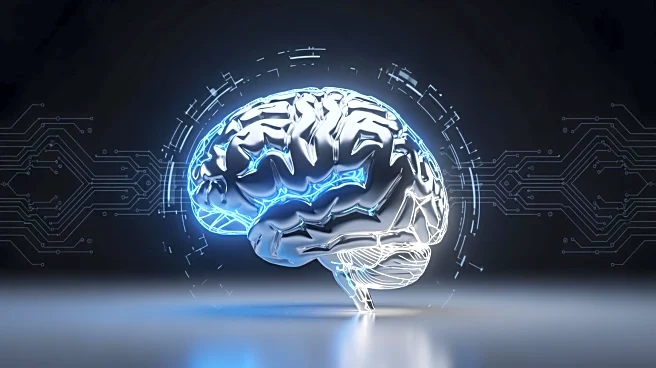What's Happening?
A recent poll conducted by YouGov in partnership with Udemy reveals that while many workers in major economies are concerned about the broader societal impacts of AI, fewer are worried about AI affecting
their own jobs. The survey, which included over 4,500 adults from the U.S., U.K., India, and Brazil, found that a significant portion of respondents lack AI skills and training. Despite the rapid adoption of AI technologies in businesses, many workers remain hesitant to invest in acquiring AI skills, reflecting an 'awareness action gap.'
Why It's Important?
The findings highlight a disconnect between the perceived impact of AI on society and individual job security. As AI continues to transform industries, workers' reluctance to engage with AI skill development could hinder their ability to adapt to changing job requirements. This gap may affect workforce readiness and competitiveness in an increasingly AI-driven economy. Organizations may need to prioritize AI training and education to bridge this gap and ensure employees are equipped to handle technological advancements.
What's Next?
As AI adoption accelerates, businesses and educational institutions may need to collaborate to provide accessible AI training programs. Policymakers could also consider initiatives to support workforce transition and skill development in response to AI's growing influence. The survey's insights may prompt discussions on how to effectively integrate AI into existing workflows and address workers' concerns about job security.
Beyond the Headlines
The reluctance to pursue AI skills raises questions about the psychological barriers to embracing technological change. It also underscores the importance of addressing the cultural and educational factors that influence workers' perceptions of AI. As AI becomes more integrated into daily life, there may be a need to redefine the relationship between humans and technology, focusing on collaboration and coexistence.









